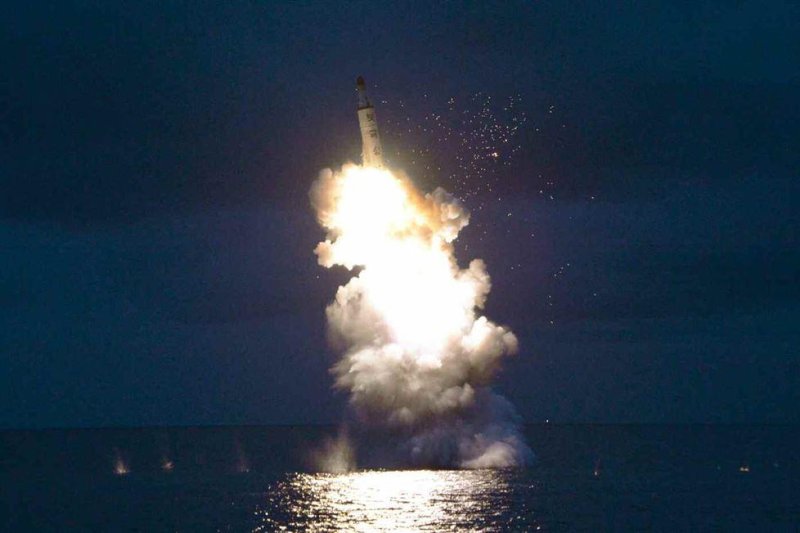South Korea said Monday Pyongyang is ramping up SLBM development, less than a week after North Korea fired a SLBM last week. File Photo by Rodong Sinmun
SEOUL, Aug. 29 (UPI) -- South Korea's military believes North Korea is likely to deploy submarine-launched ballistic missiles in one to three years, and that the weapons pose a possible threat to the U.S. mainland.
Seoul's defense ministry said North Korea has been accelerating the development of SLBMs and has fired more than 20 of the missiles since 2014, Yonhap reported Monday.
The findings were presented at a parliamentary defense committee meeting less than a week after Pyongyang test-launched an SLBM early Wednesday, hailed by Kim Jong Un as the "success of all successes."
South Korea had previously estimated deployment would take two to three years after North Korea fired a SLBM on April 23. That forecast changed with the latest missile, which traveled 310 miles and entered Japanese air space.
"North Korea is planning to increase the range and effectiveness of SLBMs...They pose direct threats to [South Korea] and can even be a threat to the U.S. mainland," the ministry had stated.
Pyongyang is working on missile development across all fronts, including fixed-mobile and road-mobile launchers that can fire missiles from land.
The defense ministry also stated North Korea's SLBM development began in the early 2000s under Kim Jong Il.
"A test site was built near a shipyard in the Sinpo area between 2012 and 2013," the ministry stated.
Seoul's military also plans to deploy an early-warning radar to track SLBMs while accelerating the development of long-range and medium-range surface-to-air guided weapons, the L-SAM and M-SAM. In cooperation with U.S. forces, the military is also seeking to rapidly deploy THAAD, the U.S. anti-missile defense system, according to the report.
North Korea has yet to show any signs of willingness to give up weapons development, but Seoul has not ceased to engage North Korea on the issue.
South Korean unification minister Hong Yong-pyo stated at a denuclearization conference in Astana, Kazakhstan, on Monday that Seoul is committed to providing North Korea with "new opportunities" if Pyongyang agrees to denuclearization, News 1 reported.















